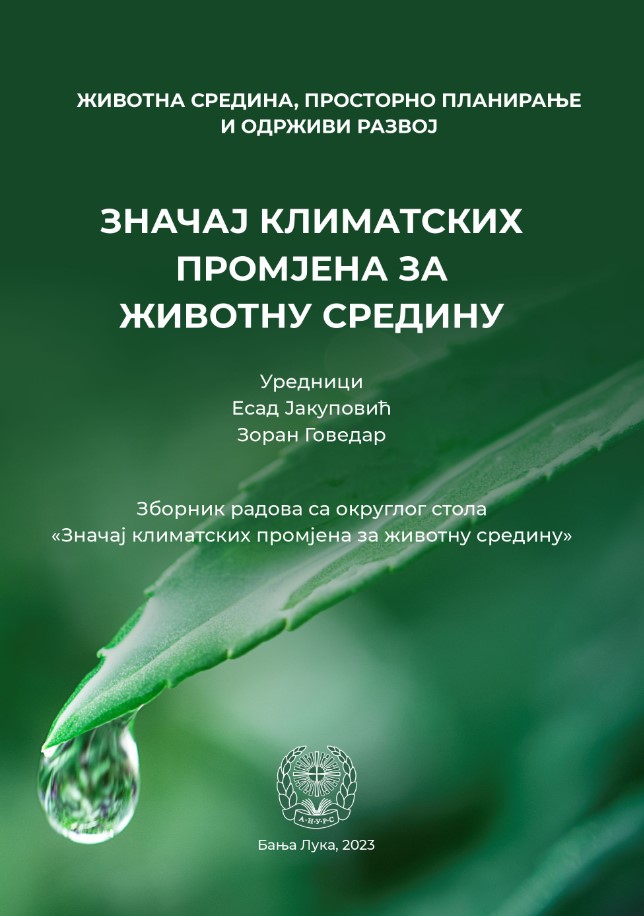Ambient air quality in the Republic of Srpska, in the light of the new directive in the European Union
DOI:
https://doi.org/10.7251/ZSPPOR2301091IKeywords:
Republic of Srpska, air quality, air pollutionAbstract
Air pollution is a major problem for the environment and human health. As a component of the environment (the Earth’s sphere), air, that is, the atmosphere, represents the basis of life on Earth. The composition of the air is mostly unchanged, except in the case of air pollution, which represents one of the significant environmental problems of modern times. In the past, pollution was caused by natural sources, while today the source of pollution is mostly of an anthropogenic character. Air pollution with basic and specific pollutants is present, especially in the areas of larger and industrial cities. The sources of pollutants in the air are numerous, and pollutants are found in all places where people live. In addition to air pollution of ambient air, it is also necessary to point out air pollution in closed spaces, especially work environments. Areas of increased pollution, with high concentrations of pollution, can have a negative impact on the population and lead to unwanted health problems. In recent decades, the high level of air pollution has been particularly pronounced, both at the global level and in the Republic of Srpska. Air pollution requires the involvement of society as a whole in solving this problem. The proposed revision of the Ambient Air Quality Directive will set interim European Union (EU) air quality standards for 2030, more closely aligned with World Health Organization guidelines, while putting the EU on a path to achieve zero air pollution by 2050 at the latest in synergy with climate and climate neutrality. The aforementioned Directive has significant improvements, but it will not completely solve the problem of air pollution or reduce to a greater extent the consequences of air pollution on the health of citizens. Air pollution cannot be solved quickly. The implementation of the new revised directive will be a challenge for the EU, and when all provisions of the directive are transposed into the national legislation of the Republic of Srpska, the application of all provisions will be very demanding and complex, with a number of problems in its application.

